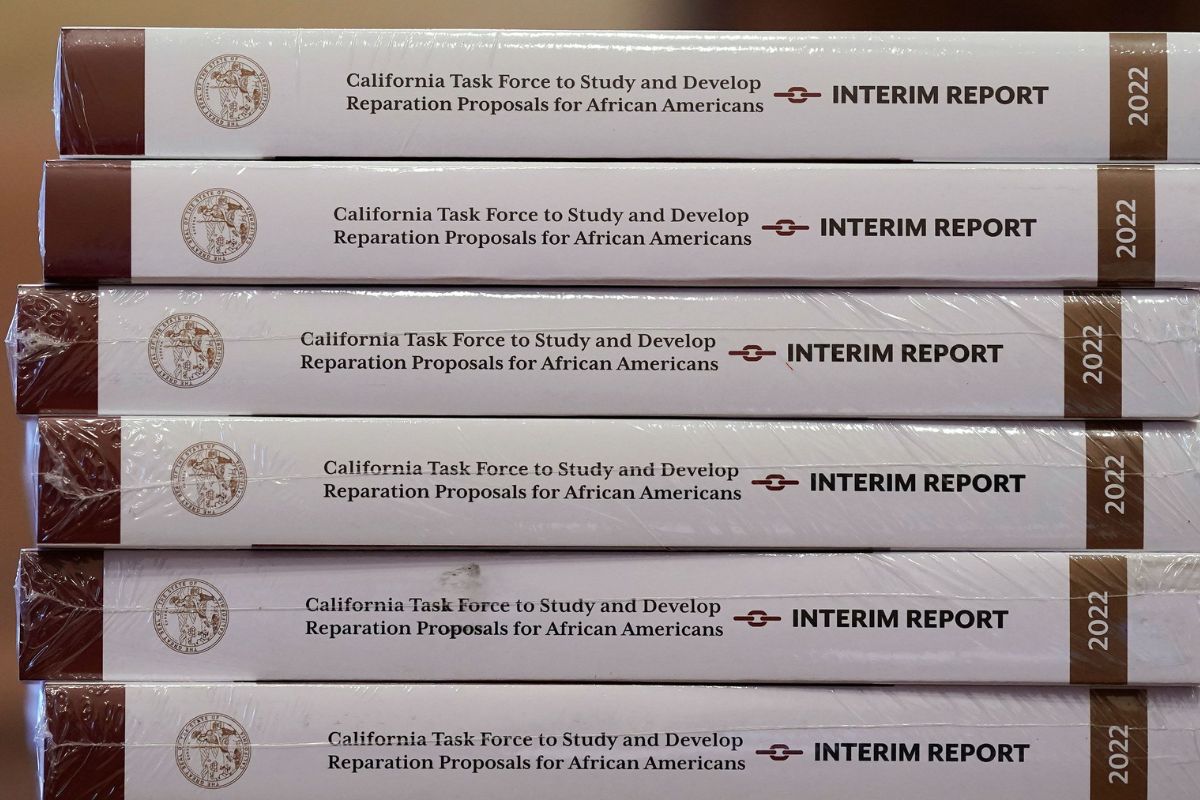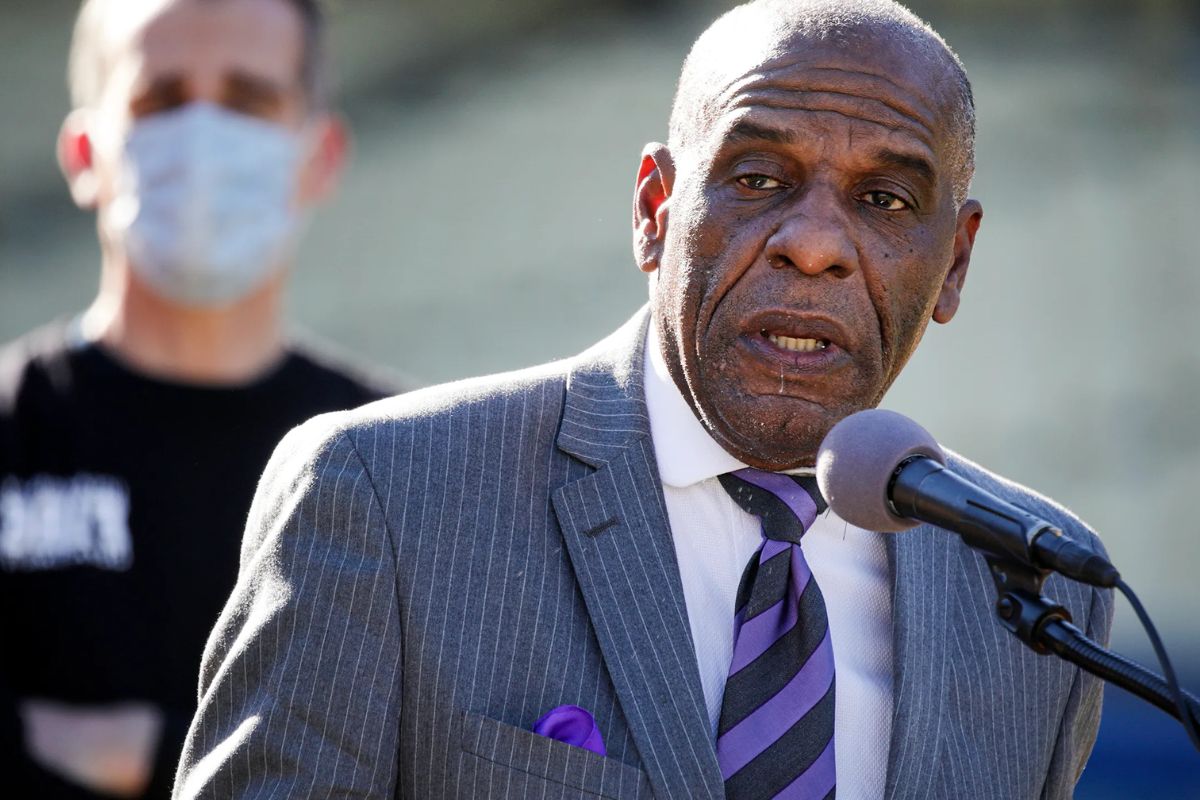California Black Legislators Reparations: In a momentous occasion that reverberates through the annals of history, California’s Black legislators have unveiled a series of reparations bills, signaling a pivotal shift in addressing the long-standing injustices faced by Black communities.
This ambitious legislative move not only marks a significant step towards rectifying past wrongs but also opens up a complex dialogue on the multifaceted nature of reparations.
As the nation grapples with divergent views on this critical issue, the unveiling of these bills sets the stage for a compelling debate that the heart of social justice and equity.
California’s Legislative Black Caucus Presents Reparations Package
In a significant move towards addressing historical injustices, the members of California’s Legislative Black Caucus have unveiled a comprehensive package of 14 reparations bills. This initiative represents a crucial step in acknowledging and rectifying the systemic discrimination and oppression faced by the Black community throughout history. The bills put forth by the Caucus encompass a wide range of issues, including seeking redress for individuals impacted by race-based eminent domain cases and advocating for official apologies for past human rights violations. By taking this bold step, the Caucus is demonstrating a commitment to addressing the deep-rooted inequities that have plagued Black communities for generations.
While the absence of direct cash reparations in the proposed bills has sparked criticism from some quarters of the Black community, it is essential to recognize that reparations come in various forms. These bills pave the way for a more nuanced and comprehensive approach to reparations, one that goes beyond monetary compensation to encompass a broader spectrum of justice and acknowledgment of historical wrongs.
Complex Notions of Reparations Beyond Cash Payments
Exploring the multifaceted dimensions of reparations reveals a depth and breadth beyond mere cash payments. Assemblywoman Lori D. Wilson’s emphasis on a broader interpretation highlights the comprehensive nature of the reparations bills proposed by California’s Black legislators. Informed by a detailed 1,100-page report from the California reparations task force, these bills go beyond simplistic notions of reparations as direct financial compensation. Instead, they encompass a range of measures aimed at addressing systemic wrongs and injustices faced by the Black community.
This nuanced approach recognizes the need to tackle multifaceted challenges, including issues related to property rights and the implementation of community-based programs. By acknowledging the complexities of historical and ongoing injustices, the legislators are striving to create a more holistic and impactful reparations package. Through these efforts, they aim to pave the way for a more equitable future for Black Californians, one that addresses not only past harms but also works towards building a more just society for generations to come.
Legislative Action Stemming from Task Force Recommendations
The implementation of the 14 bills represents a significant step forward in enacting legislative measures based on the comprehensive recommendations put forth by the California reparations task force. These bills are not just pieces of paper; they are the embodiment of years of research, advocacy, and resilience by communities long marginalized and oppressed. The legislative action taken now is a beacon of hope for those seeking justice and equity in a system that has historically failed them.
Here are four key points to consider regarding this monumental step:
- The 14 bills are the first legislative response to the exhaustive report delivered by the California reparations task force, marking a pivotal moment in the journey towards reparative justice.
- Created by a state bill in 2020, the task force dedicated two years to compiling recommendations, urging lawmakers to address over 100 proposals for reparations.
- This legislative action reflects a concerted effort to translate the task force’s findings into tangible policies, signaling a meaningful commitment to addressing historical injustices.
- The implications of these bills extend far beyond mere words on paper, holding the potential to reshape the landscape of reparations and equity in California.
National Divide on Reparations and Public Opinion
Amidst the national discourse on reparations, divergent viewpoints across political affiliations and racial demographics underscore the intricate tapestry of perspectives shaping public opinion on this contentious issue.
The Reuters/Ipsos survey showcases a stark contrast in attitudes, with nearly 60% of Democrats supporting reparations compared to only 18% of Republicans. This political disparity reflects broader ideological divisions on historical injustices and the role of government in rectifying them.
Furthermore, the survey highlights a significant racial gap, with 74% of Black Americans in favor of reparations while only 26% of white Americans share this viewpoint. These contrasting positions reveal deep-seated disparities in historical experiences, perceptions of systemic racism, and beliefs about the responsibility for addressing past wrongs.
As the debate on reparations continues to unfold, understanding and reconciling these diverse perspectives is essential for meaningful progress towards racial equity and social justice in the United States.
Also Read: Baja California Bold Move Open Justice Declaration Signed!
Calls for Cash Payments Amidst Legislative Steps
Shedding light on the intersection of legislative progress and advocacy efforts, the discussion now turns to the imperative need for cash payments as part of California’s reparations bills. Civil Rights attorney Areva Martin, a vocal advocate for affected communities in Palm Springs, emphasizes the importance of direct cash payments to Black Californians. Here are four compelling reasons supporting the call for cash reparations:
- Equity: Cash payments can address the economic disparities and injustices that have long plagued Black communities in California.
- Recognition: Providing cash reparations acknowledges the historical wrongs and systemic racism that have hindered the progress of Black individuals and families.
- Empowerment: Direct financial support can empower recipients to invest in education, homeownership, and entrepreneurship, fostering long-term economic stability.
- Symbolism: Cash payments symbolize a tangible commitment to rectifying past injustices and moving towards a more just and equitable society.
Martin’s advocacy underscores the urgency of including cash payments in the reparations framework, challenging societal norms and advocating for meaningful change in addressing racial disparities.
News In Brief
California Legislative Black Caucus presents a comprehensive package of 14 reparations bills. Addressing systemic discrimination and historical injustices, the bills cover issues like eminent domain compensation and seeking apologies for human rights violations. While criticized for the absence of cash reparations, advocates argue for a nuanced approach, emphasizing the bills’ multifaceted nature. The legislative action stems from a 2020 state bill, responding to a 1,100-page report by the California reparations task force. National opinions on reparations vary, with Democrats more supportive than Republicans, and a racial divide emphasizing the complexity of this crucial issue.



